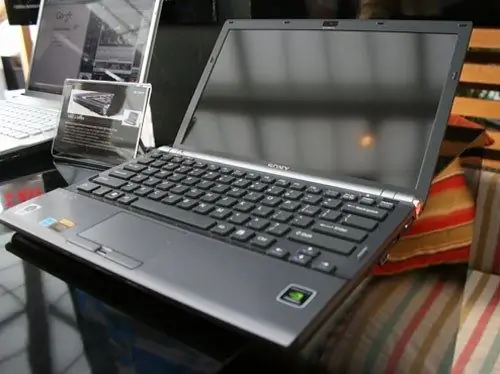Usually, users go into BIOS when installing an operating system to change the order of boot devices. Different laptop models have different motherboard models, so the procedure does not always look the same.

Instructions
Step 1
Turn off your laptop. If you have a Sony of the latest models, then to enter the BIOS, press the F2 key when loading. Enter your password if required. In some models, pressing the F2 key is relevant, but this is more true for older versions. F3 is found in very rare models. It will not be superfluous to familiarize yourself with the specification of the motherboard.
Step 2
To do this, look at its labeling in the device manager. To do this, using the "Start" menu item, right-click on the "My Computer" item. You will see a new small window on the screen with the parameters of the laptop and the operating system. On the Hardware tab, select Device Manager.
Step 3
Find your motherboard in the list that opens, remember its model, find it on the Internet, how, after all, it will be correct to get into the BIOS on this particular model. If you don't have the option. try to find the combination you need for your computer by trying and reading the manuals that come with the kit.
Step 4
If you have an older Dell laptop, use the F2 + Esc keyboard shortcut, or any other key that appears on the monitor screen when the computer boots. If you have a Dell Studio laptop, try the Esc + F1 key combination.
Step 5
To get into the BIOS of a Toshiba laptop, use the same method as in the previous paragraph (Esc + F1), but note that some of its models support the BIOS launch when you press the F8 key.
Step 6
If you have a Packard-Bell, Gateway laptop - be sure to look at what is written on the boot screen, try using the previously used Esc + F1, Esc + F2 combination.
Step 7
For some Acer, use the three-key combination - Alt + ctrl + Esc. For rare Dell and HP models, it is typical to press F3 to access the BIOS.






